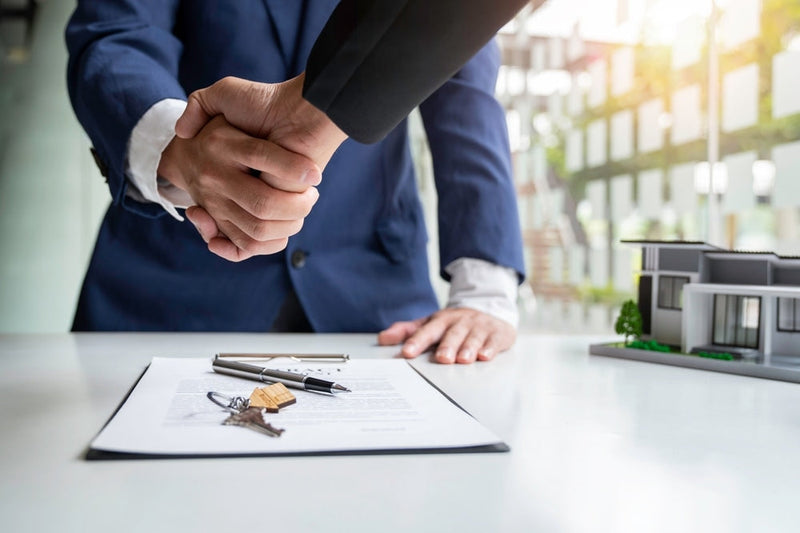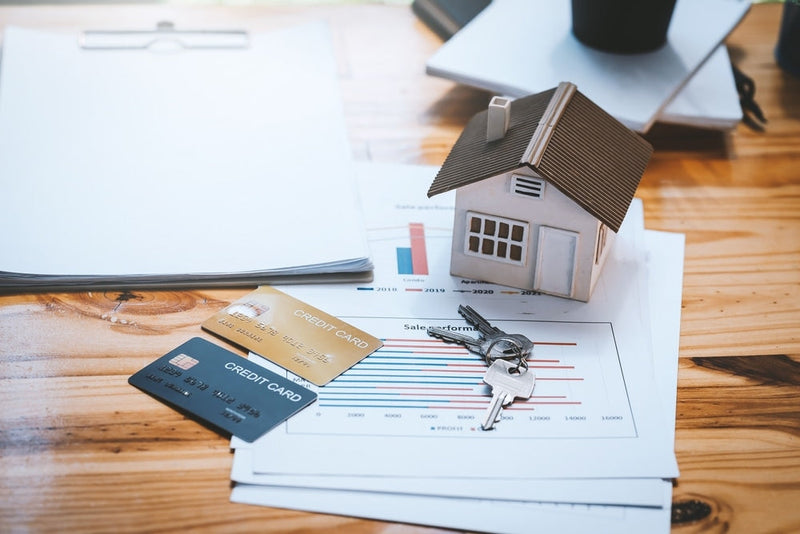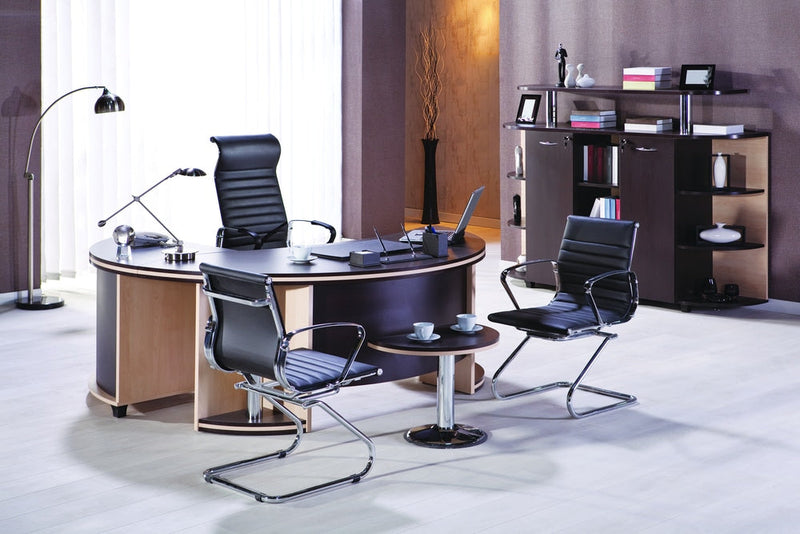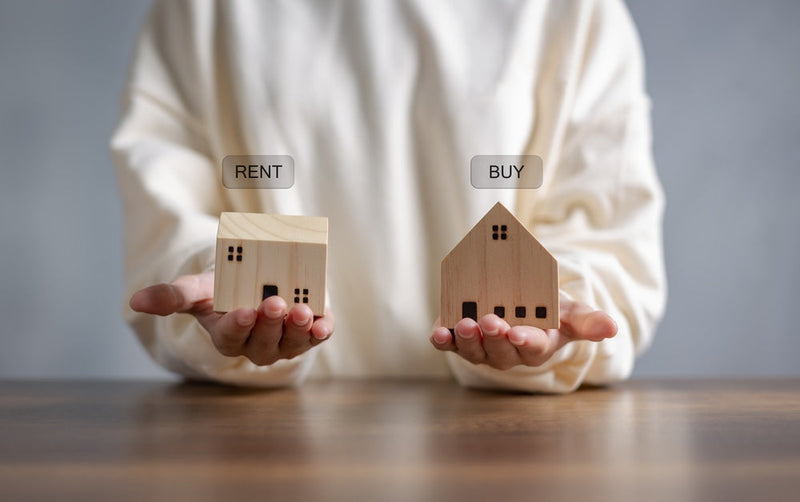
by Rahmeh Tar
Best Tips to Find the Ultimate Property Deals in Dubai!
Are you searching for a fantastic property in Dubai without paying over the odds? If so, let me know the insider strategies that always help me discover incredible deals. With a bit of effort using my tips, you'll uncover hidden gems other buyers miss. We'll show you the areas and property types that offer the most potential. Plus, you'll learn my tried-and-tested negotiation techniques guaranteed to save you ten, if not a hundred thousand dirhams. The Ultimate Guide to Finding the Best Property Deals in Dubai Have you been hunting for top bargains with your real estate company in Dubai but come up short? Let me give you some insider tips on tracking incredible deals and turning the tables in your favor. Research about the Dubai Real Estate Market The key to finding unbelievable deals in Dubai's dynamic property sector is having in-depth knowledge of the market. Research must stress the importance of staying religiously on top of all the latest trends and developments. Follow analysts and pore over their reports on price movements across areas. Sign up for broker newsletters to understand the hottest market areas and where bargains may emerge. Keeping abreast of new project launches will put you in the perfect position to capitalize when initial off-plan prices are announced. The time put into research will pay off in spades when opportunities come knocking. Make it the number one priority. Engage with Real Estate Agents When looking for deals on luxury villas in Dubai, one of the best things you can do is engage actively with local real estate agents. A good agent will have their finger on the pulse and know about high-value opportunities before they hit the broader market. They can alert you immediately if a motivated seller drops the price on a prime villa. You should build strong relationships and make your budget and needs clear. Down the line, they'll remember you when an off-market gem pops up that fits your wish list perfectly. An agent is your best bet to access properties other buyers have not found. Attend Property Exhibitions and Events Another wise strategy for hunting for top bargains is attending major property exhibitions, seminars, and events around the city. Here, you'll gain invaluable insider knowledge and make connections. Move between stands to talk with developers about any upcoming sales activity you must watch out for. Chat with brokers to develop relationships so they'll advise you first about specific hot properties. It would help if you took every opportunity to interact with industry experts - one discussion could unearth the perfect hidden gem tailored to your specifications. Give face time at these functions, as you never know whose hand you may shake and what doors may open. Be Flexible with Locations One of the best ways to maximize your bargain chances is to be flexible regarding locations. If your heart is set only on an apartment or villa in a prime, central area, you're drastically limiting your options. With some research, you may discover up-and-coming neighborhoods that will soon enjoy a price hike but can now be your own for less. Being adaptable means considering villages on the fringes or communities further afield, that still offers superb connectivity. You should cast your nets wide - who knows where a gem could pop up? With patience and an open mind, incredible value may await in unexpected areas. Negotiate Effectively One final tactic when engaging with real estate development companies is negotiating like a pro. You need to research recent sales of similar properties to know the figure you should pay. Don’t be shy to negotiate, and try to politely bring the asking price down and decrease the asking price - most sellers expect it. See if they’ll sweeten the deal by throwing in fixtures or fixtures and fittings worth thousands as an incentive. Bear in mind slow periods when developers may be more flexible. With tenacity and doing your research, you’ll be amazed at how much you can potentially save. A little diplomacy could mean the difference between a good deal and a great one. Keep an Eye on Off-Plan Projects Another fantastic way to find top value is to keep a close eye on new property launches and invest off-plan. If you research, you'll find communities where the initial off-plan prices are meager for the pending location and facilities. By purchasing at launch, you'll benefit from the most significant price increases as the project nears completion. Always check the payment plans, too - you can often bag a substantial discount the earlier you commit. Following new developments should be a priority if you want to maximize profits or secure the best deals for your use. The planning stage presents unmissable chances. Explore Auctions and Foreclosures Don't forget to cast your net to properties being auctioned or listed as foreclosures. During auctions, you'll find top-notch homes in premier locations going for well below typical market value. Do your research on repossessed units, too. Often, they need minor renovations, and you could pick them up at a massively discounted rate. For the savvy buyer, these opportunities present colossal potential. With the element of rivalry removed, you stand a strong chance. Spare no effort scanning the classifieds and auction portals - they could lead you to hidden property treasure. Consider Legal and Regulatory Aspects While enthusiastically hunting for properties, pay attention to essential legality. When buying off-plan, thoroughly check the developer's credibility and experience in delivering on previous launches. Verify the unit's freehold title status and legitimate permits. For ready homes, inspect documents showing no legal issues exist. Factoring in any regulatory changes on the horizon also prevents unpleasant surprises. Consulting a local real estate lawyer ensures you understand the terms and can protect yourself. What is a fantastic opportunity could harbor blocks—protect your investment by diligently covering all bases before signing anything away. Inspect Properties Thoroughly Thorough due diligence is a must when viewing potential properties. Set aside ample time to inspect each one you're interested in thoroughly. Thoroughly check the structural condition and finishings - lift floorboards and look under sinks. Examine the exterior for signs of leakage or damage. Flip through copies of building certification and permits. Test fixtures and appliances and make sure utilities are all operational. Be comprehensive so you understand the true state and any potential repairs needed. Only finalize something after properly examining it first. Taking this step protects you from post-purchase shocks down the line and unforeseen costs. Confirm the Deal Once you've found your dream property at a price you're delighted with, you must confidently confirm the deal. Double-check clauses, payment schedules, handing over dates, and cooling off periods in the contract before signing away. Clarify any opacity with the agent or lawyer to avoid miscommunication issues later. Ensure the title deeds are clean and ownership can be securely transferred to you. Taking time on this final step provides peace of mind that you've secured the genuine property bargain you sought with your tireless efforts. Complete the Transaction The final critical step is ensuring you properly complete the transaction. Double-check everything with your lawyer or broker when the big day comes to close the deal. Thoroughly review all documents again to fully understand the terms before signing. Receive signed copies of the purchase agreement deed for your records. Confirm that funds have been released as agreed. With the loose ends officially tied up, you'll receive the keys, knowing the property is authentically yours to cherish. Celebrate your tenacity and brilliant work paying off with the great investment or home that began as just a vision. After a focused search, you've indeed found the ultimate property deal. Be Patient and Persistent Patience and persistence will serve you incredibly well in hunting for superb property value. Real estate transactions take time, and the best deals may take time. Keep regularly checking notifications, and keep going after a few disappointments. Expanding your hunting grounds can yield rewarding results with consistency. Be willing to wait for the optimal place rather than settling too soon. A prime opportunity will come by staying dedicated and refusing to lose hope. Just make sure to leap on it! Keeping an enduring outlook and commitment to the cause will ultimately lead to your perfect property deal with unbeatable terms. Staying motivated is vital. Conclusion With patience and diligence utilizing the insights shared throughout this guide, your odds of unearthing a genuinely incredible property deal in Dubai become greatly amplified. However, remember that finding your perfect fit necessitates flexibility and personal research to identify worthwhile hidden gems. Discuss options candidly with professionals as well. Most importantly, trust your intuition and don't settle simply due to scarcity or speed. By taking your time applying what you've learned, a superior opportunity perfectly matching your distinct desires and budget is poised to surface. Stay persistent yet calm. When you conduct your search confidently and smartly, you will succeed in finding the best value.






